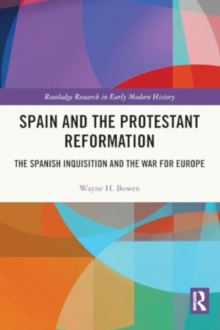
Timothie Bright and the Origins of Early Modern Shorthand : Melancholy, Medicines, and the Information of the Soul Hardback
by James Dougal Fleming
Part of the Routledge Research in Early Modern History series
Hardback
Description
In Timothie Bright and the Origins of Early Modern Shorthand, J.D.
Fleming brings together two areas of sixteenth-century intellectual history.
One is the period emergence of artificial systems for verbatim shorthand notation—a crucial episode in the history of information.
The other is the ancient medical discourse of melancholy humour, or black bile.
Timothie Bright (1550–1615), physician and priest, prompts the juxtaposition.
For he was the author, not only of the period’s original shorthand manual—Characterie (1588)—but also of the first book in English on the dark humour: The Treatise of Melancholy (1586). Bright’s account of melancholy involves a cybernetic phenomenology of the human.
Essentially, we are psyches (souls or minds). We are sealed off from our bodies, operating them as automata across an interface.
Psychological presence, for Bright, is illusion and pathology.
Engrossing performances or representations therefore bring great danger, and so does the doctrine of predestination—less for its content than its typical delivery.
Painful preaching was indispensable in sixteenth-century English Protestantism.
But it falls foul of Bright’s proscriptions. These are followed by his publication of the first known system for verbatim shorthand notation since antiquity, its technique heavily inflected toward a vocabulary of the pulpit.
The passionate, oral performance of the inspired preacher receives an unprecedented textual preservative—and prophylactic.
Bright’s technology of information serves his phenomenology of alienation. This book will be of interest to students and scholars of the early modern period, the tradition of melancholy, and the history of information—as theory, and technology.
Information
-
Pre-Order
- Format:Hardback
- Pages:228 pages, 4 Halftones, black and white; 4 Illustrations, black and white
- Publisher:Taylor & Francis Ltd
- Publication Date:14/06/2024
- Category:
- ISBN:9781032757490
Information
-
Pre-Order
- Format:Hardback
- Pages:228 pages, 4 Halftones, black and white; 4 Illustrations, black and white
- Publisher:Taylor & Francis Ltd
- Publication Date:14/06/2024
- Category:
- ISBN:9781032757490










